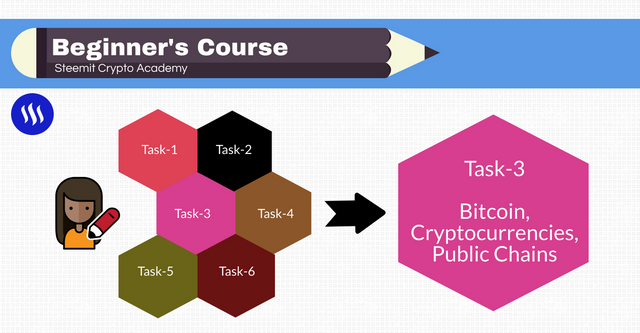Crypto Academy Season 3 Beginners' course - Homework Post for Task 3: public chain for professor [@stream4u] by @obikay
(3) What Is Public Chain? And What will Be the Advantages and The Disadvantages of Public Chain?
What is a public chain
public blockchains do not have prohibitions. Anybody having internet connection access can access the network and begin validating blocks and also sending transactions. Generally, the networks tend to provide some sort of motive for users who validates the blocks.
Anyway, the network seems to make use of Proof of Work(Pow) consensus algorithms for validating the transactions.indeed It is a “Public” network.
This model was what Satoshi Nakamoto suggested back in 2009. Soon, enterprise companies began to show interest in blockchain technology and the nature of Decentralized ledger was tweaked bringing about private blockchains.
The public blockchain architecture, one can download the protocol at anytime, and you won't be needing any permission from anybody.
Public Blockchains are fully Decentralized, no body controls the system unlike the private network which can be changed by the owning organization.
The system has its natural flow– just like a flowing river. No body controls the flow path, but everyone can use it.
Some examples of public blockchain are
✓ Litecoin
✓ Ethereum
✓ Bitcoin
Advantages of Public Blockchain?
Full power to user
In some network chain, the users are bound by a number of regulation, rules, and protocols. But in public Blockchain is not the same because there are no central authority maintaining the network, so the users are given full freedom to access and work with the system and also contribute their ideas.Immutability
Immutable in the sense that when blocks are created and placed into the chain, it can't be altered, modified, or deleted. Making it not easy to be manipulated.No regulations required
There are no particular rules for public blockchain concerning network server usage. It can be created without any limitations.Maximum security
The public Blockchain and it's platform is planned to work with maximum security. They also maintain high level of security protocols.Decentralized
True decentralization is one of the core attractions of the public chain. Unlike the private blockchain this feature is not there. Since no single central platform keeps up the network: rather, it runs as a distributed system every one user having a copy of the ledger.
Maintenance activities are carried out from different nodes and it's ledger is updated on a consensual basis.
Disadvantages of public blockchain
public Blockchains are slow, which means it takes the network more time to get to consensus. Processing a single block takes more time when compared to private blockchain
Public blockchains have scalability problems. Which means public blockchains can’t compete with traditional systems, the more a public blockchain is been used, the slower it becomes making transactions clog the network. There are also steps taken for solution.
Energy consumption is also a concern when it comes to public blockchain. Bitcoin’s algorithm counts on Proof-of-Work, which depends on a lot of electricity to function.
Conclusion
The Blockchain technology is continually evolving, as it grows everyday things will tend to change. Lastly, blockchain is all about accessibility and it can be used in a private or a public capacity. They both have their own use cases.
Thank You professor @stream4u for the lecture

